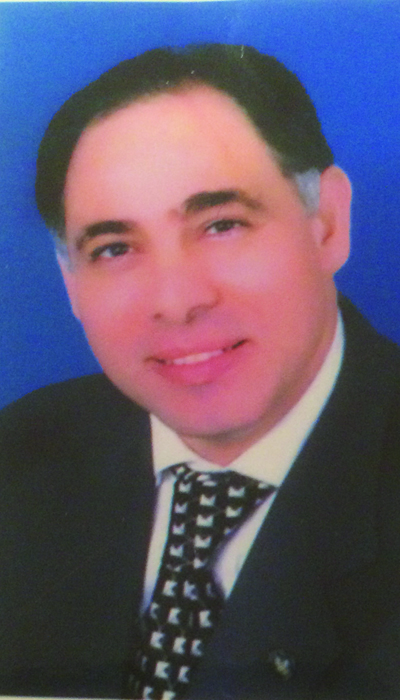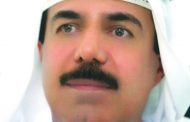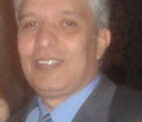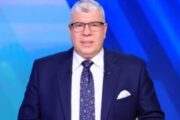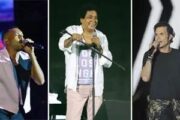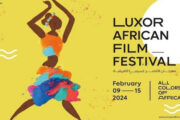A philosopher who rebelled against philosophy with poetry and extracted wisdom from numbers; breaking the difficulty of philosophy with the softness of poetry. When philosophy challenges poetry and wisdom emerges from numbers and figures, we will find the writer Elsayed Elhady traversing the distance between the poet’s heart and the world’s mind back and forth in search of the truth, striving to create interesting spaces of axioms and logic just as green plants emerging through cracked stones, opening up new profound possibilities for understanding nature
Elsayed Elhady says that he admires philosophy and admires it more when
it rebels against itself with literature. He sees in this a step from
philosophy’s first role that’s concerned with the accuracy and abstraction
of concepts and their precision in definitions and terminology to a broader
role in society, religion, politics, art, and the soul…to a broader role in life
Trying to take an image of ourselves in exceptional moments and at such
moments a person stands behind his body to end one’s life, looking for a
cold spot in the sun’s core. Try to also take a different picture of ourselves
after the sunset, believing that we cannot fully understand ourselves
unless we contemplate our ugly image behind the mirror
Elsayed Elhady bases his philosophical vision on how wisdom emerges
from the number just as wisdom emerges from the alphabet, revealing
mathematical treatises on definitions, axioms, and logical principles. He
surpasses with his perspective and exceptional ability to analyze moral
and fateful issues from a mathematical perspective that enables us to
formulate equations and diagrams for a variety of human emotions
including pleasure of love, spirit, happiness, eternity, patience, will,
miserliness and misery. Elsayed Elhady offers a unique account on the
eternal duality of pain and awareness, fraud and lying, and even at the filth
of the streets of a city ruled by a tyrant, to stop us at this point at which
the philosopher becomes a mathematician and the mathematician
becomes a philosopher
Elsayed Elhady brought us back to the first steps that we taken by Plato 2400 years ago when he searched for fixed facts in meanings and ideas that correspond to mathematical facts, and he also tried to approach the dream of the German philosopher and mathematician Gottfried Wihelm Leibniz in 1716 that one day man could write his abstract ideas in a mathematical language and separate mathematics when an argument rages between two people. And what the German philosopher and mathematician Johann Friedrich Herbart did in 18th century when he tried to apply mathematics to psychological phenomena and his attempt to introduce quantum into psychology. Withal, Elsayed Elhady reminds us of the mathematician and philosopher Frederick Ludwig Frege in his contributions to founding analytic philosophy, concentrating on the philosophy of language, logic, and mathematics. By the same token, Elsayed Elhady’s analytic philosophy correlates with the German philosopher Rudolf Carnap in the 19th century, by considering the logical basis of linguistic structures, and what the English mathematician and philosopher George Boole added in applying quantitative algebra to logic issues in his book “Mathematical Analysis of Logic”; up to the serious attempt by the American linguist and philosopher Noam Chomsky, in how to benefit from mathematical equations and apply them to the rules of phrase structure and building linguistic equations
Elsayed Elhady adds valuable contributions to analytic philosophy by
establishing the idea that if a mathematician has the right to hold the unit
of measurement and objectivity in any philosophical treatises, then the
philosopher has the right to use the tools of a mathematician when he
talks about subjectivity as long as he maintains logic and the correctness
of meanings and ideas, and as long as he avoids half collisions and
obtains half acceptance and he has the right to reveal one of the secrets of
, the language hidden in a mathematical way, in its vocabulary, concepts
.structures, and even in its letters
Elsayed Elhady says that this language, which carried its numerical
miracles on its palms with the number of letters that form it, bore the same
astonishment as it moved at the logic of words, phrases, concepts, and
meanings that make up its magic, and it is full of numbers, equations,
graphs. And this is since zero symbolized nothingness and the one
symbolized existence and together (zero and one) formed the clear
relationship between “number and meaning”
This language, which God revealed to man to relate his universe, his world
and his consciousness in a logical manner, cannot be far from being, with
all its components, part of the arithmetic and mathematical formation of
this universe, or far from Pythagoras’ saying, “The universe follows a
mathematical system in its effect, and therefore it is logical to capture its
essence”. As well as his saying, “Existence is a melody and a number”. Or
Galileo’ saying “The mathematical principles are the alphabet with which
God wrote this world, and without them it would be difficult for us to
understand a single word from the Book of Nature”. Therefore, Elsayed
Elhady believes that the language of the philosopher moves away from the
language of the poet as much as it approaches the languages
mathematician, and departs from the language of the mathematician as
much as it approaches the language of the poet
On the way from “Suicide and the Third Man” to “Happy by Chance and
Tormented by Inheritance” to “Dialogue with the Back of the Mirror” to
“Number and Meaning in the Mathematics of Definition and Quantum
Philosophy” to “Death Heading West” to “The Theory of Salvation from the
Flaming Ball” to “That Human Who is Laughed At”, Elsayed Elhady
published 7 books and wrote nearly 800 philosophical aphorisms that
brought us back to this literary genre that took place in the 17th century
where aphorisms were the preferred method of expression for moralists
such as François de La Rochefoucauld and French writers and thinkers
Vauvenargues and Bruyère who were devoted to aphorism until they made
it a literary genre, as stated in La Rochefoucauld’s book “Ethical Sayings
and Judgments” published in 1634 and as it came in Bruyère’s book
“Characters”, where he collected many characteristics of human beings
using short sentences, wisdom, proverbs, and portraits. Similarly, Elsayed
Elhady’s writing resembles contemporary writers in the 20th century, the
Irishman Oscar Wilde and the Bulgarian-German Elias Canetti, who won
the Nobel Prize for literature in 1981; who used this literary genre in their
.writings
Elsayed Eladhy’s aphorisms and their aesthetics are characterized as
intensive, and goes with the spirit of the era in which people are no longer
able to read lengthy studies and reach and just to skip to conclusions
They are also surprising, as they surprise and transform a lot of what has
already been set in the mind from concepts that have always been
circulated by humans with their thoughts, their souls, and their
expressions. His aphorisms combine the literary and the scientific, placing
concepts in a wider circle than what is known in philosophy alone. It
addresses the interested general reader and does no keep its orbit only
within the framework of competence and specialists. It seems new in the
way it is presented, and a Stoic mystic influence is evident through it
especially with Seneca and his sayings about poverty, wealth, and pain
He also glimpses in his sayings about love, money, and possession – a
“trace of Erich Fromm’s thoughts, especially in his books “Art of Loving”
?”and “To Have or To Be
Elsayed Elhady achieves what the German philosopher Friedrich Nietzsche
aspired to say in ten sentences what others say in an entire book; seeking
to confirm the words of Mao Zedong, “The strength of philosophy is that it
transforms big ideas into a few words”. For him, philosophy is a process of
asking questions in attempt to understand this world and humans. Elsayed
Elhady believes that if these questions are directed towards understanding
the universe, then philosophy will begin to engage scientists in scientific or
objective issues and if these questions are directed towards understanding
humans and their subjective issues then poetry will join to understand
. human nature
Similar to philosophers who worked in the diplomatic field, such as Voltaire
and Francis Bacon, and others; Elsayed Elhady worked as a diplomat in
the Egyptian Embassy in Canada with the rank of Minister Plenipotentiary
and in the Embassy of Egypt in Jordan as a Counsellor. Elsayed Elhady
was born on October 18th, 1961 in the village of Kafr Shebeen, Qualybia
Governorate in Egypt. He holds a postgraduate Master’s degree in
Economics. He is a member of the Egyptian Writers Union, a member of
.the Egyptian Philosophical Association, member of the Egyptian
:Association for Political Economic, Statistics and Legislation
-Among the aphorisms of the philosopher Elsayed Elhady
“The known in life is the stopping point…the unknown is the path”
“The longest distance between two points is the distance between the problem and the
solution”
“The greatest revolutions are those that take place inside us without making noise.
Contentment is one of them”
“The soul is ‘life within the body’ and life is ‘the soul outside the body’…the inner world = the
outer world”
“Everything that brings comfort deserve discomfort”
“Life without meaning and purpose is just an unfortunate accident on a highway”
“There is no hand lighter than the hand of time when it steals life”
“Sorrows are like fish, the big ones eat the small ones”.
“We must not accept no other name for destruction than destruction, and we must accept no
other name for killing than killing even if we are given a thousand justifications and carried a
thousand noble banners”
“If you see yourself as the master of others, then you are a slave to a bad idea”
“If the devil did not exist, we would’ve invented him to justify the existence of all this evil
around us”
“Evil needs long introductions and many justifications to pass, so words about it precede
action. On the other hand, goodness does not need introductions nor justifications, so action
precedes speech”
“Comfort in life was taken by injustice, and as usual, it was not distributed equally among
people. And fatigue in life was taken by justice, and as usual, it was distributed equally among
people”
“People in life are as they are in love, each of them has their own unique story; but all in all
they share similar stories”


